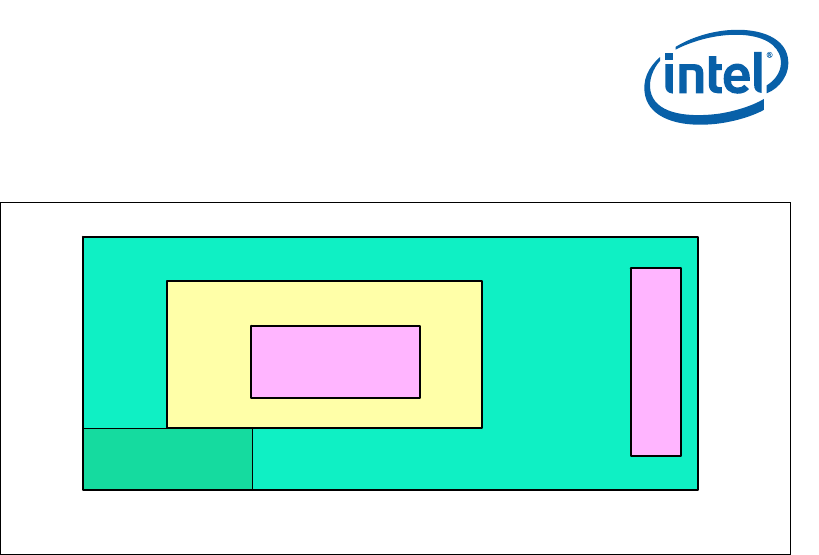
Intel
®
IXP43X Product Line of Network Processors
April 2007 HDG
Document Number: 316844; Revision: 001US 57
Hardware Design Guidelines—Intel
®
IXP43X Product Line of Network Processors
• Place noisy parts (clock, processor, video, and so on.) at least 1.5 – 3 inches away
from the edge of the printed circuit board
• Do not place noisy components close to internal/external cables
— Any loose cables picks up noise and acts as an antenna to radiate that noise
— Be aware of the peak in-rush surge current into the device pins. This surge
current can inject high-frequency switching noise into power planes of the
printed circuit board
• Place high-current components near the power sources
• Do not share the same physical components (such as buffers and inverters)
between high-speed and low-speed signals. Use separate parts.
• Place clock drivers and receivers such that clock trace length is minimized
• Place clock generation circuits near a ground stitch location. Place a localized
ground plane around the clock circuits and connect the localized plane to system
ground plane
• Install clock circuits directly on the printed circuit board, not on sockets
• Clock crystals should lie flat against the board to provide better coupling of
electromagnetic fields to the board
4.5 Stack-Up Selection
Stack-up selection directly affects the trace geometry which, in turn, affects the
characteristic impedance requirement for the printed-circuit board. Additionally, the
clean, noise-free-planes design and placement is significantly important as
components run at higher speeds requiring more power.
Considerations include:
• Low-speed, printed-circuit-board construction — for example two-layer boards:
— Advantages:
•Inexpensive
• Manufactured by virtually all printed-circuit-board vendors
— Disadvantages:
Figure 16. Component Placement on a PCB
B2264-01
PCB
High Frequency
Components
Medium Frequency
Low FrequencyAnalog Circuit
C
O
N
N
E
C
T
O
R


















